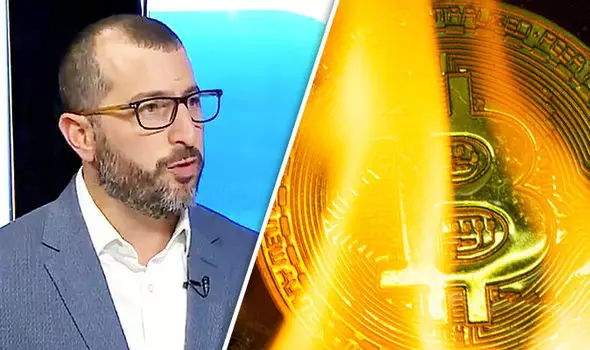
“It allows for the first time for money to be transferred without the third party which we call the bank.
“That means I can transfer money to you, sort of anonymously and once I do it, then you have the money and there is no one in between us that can know what we’re doing.
“There is a distributor leisure that means the network is holding all the transactions that have been made before, unlike when we have the bank, and that means that everybody can know what transactions have been made in a network.”
He added: “Now, there are a few problems because it’s a decentralised network which means that it’s also a decentralised security. With new technology comes new risk.
“For example, every person that has a wallet, a wallet with bitcoins, now is responsible for his own security unlike today, where the bank is responsible for the money that you have in your wallet.
“The problem is that because there are no third parties, once I’ve sent money to you, no one can take it back, so there is almost no law enforcement and no one to catch you in between and tell you ‘look, you’ve got the money, it’s not yours, now bring it back to me’.”
The cybersecurity expert added that because of the vulnerability of the system a Ukrainian blockchain analyst was kidnapped, and a famous bitcoin exchange was hacked and 120,000 bitcoins stolen, worth $1.8 billion.
"This is why the hackers have an interest that the value of bitcoin will rise", he concluded.
Bitcoin has been associated with criminal activity as the anonymity of virtual wallet holders means criminals can transfer money without having to disclose their names or location.
Europe’s financial regulation chief said EU authorities are looking for ways to tighten their oversight of the growing cryptocurrency market, to stop bitcoin being used by money-laundered, drug traffickers and terrorists.
Enjoy the vote and reward!
Downvoting a post can decrease pending rewards and make it less visible. Common reasons:
Submit